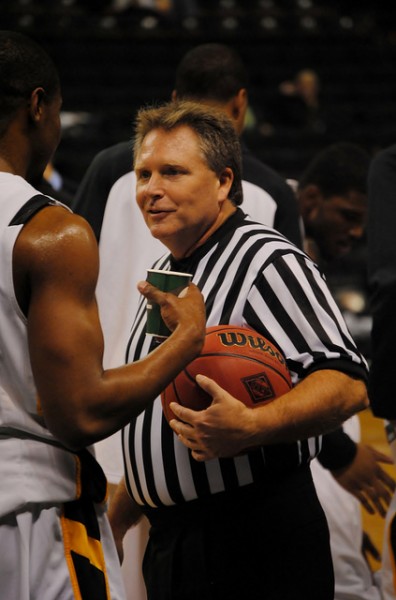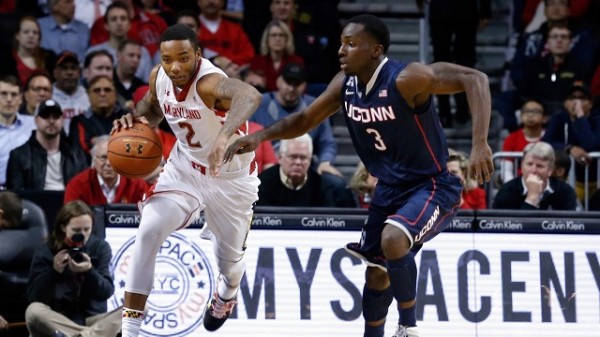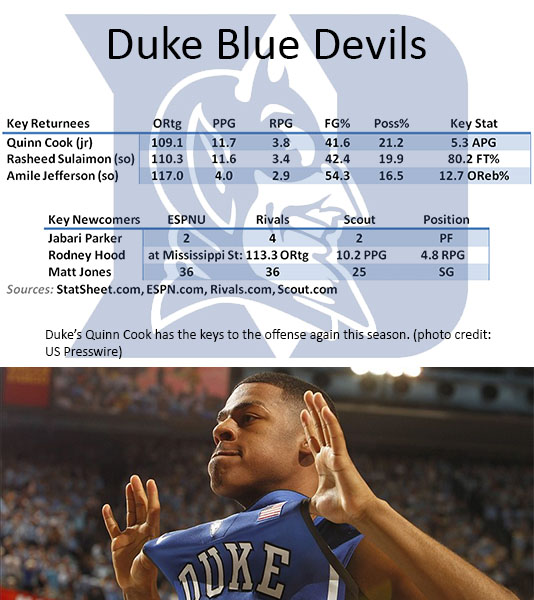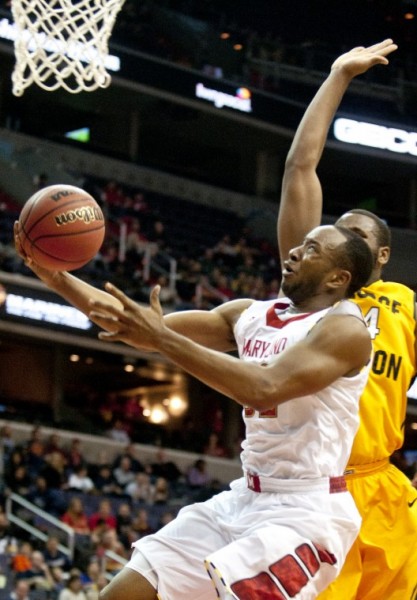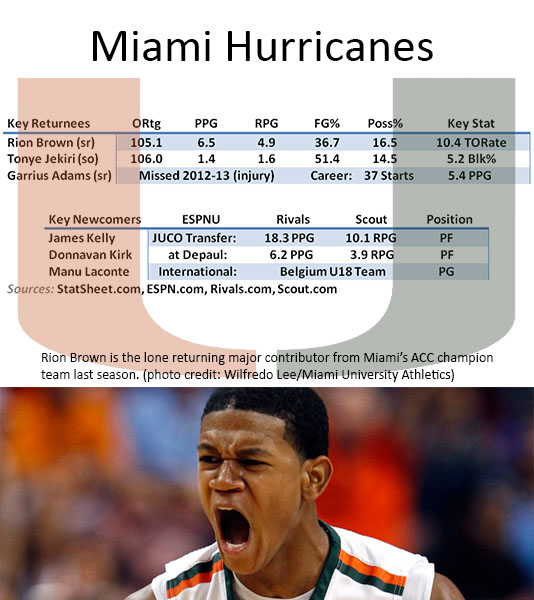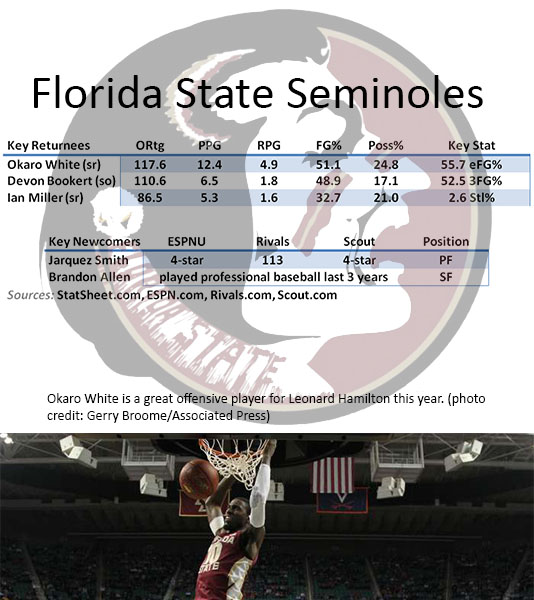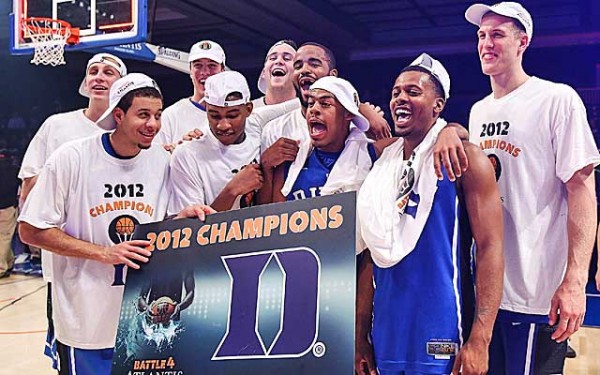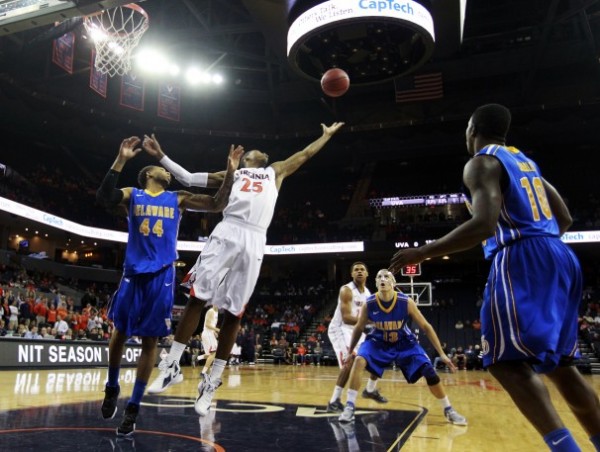Let’s Talk Early Returns on Officiating and the New Foul Rules
Posted by Brad Jenkins (@bradjenk) on November 13th, 2013Ken Pomeroy has an interesting post on his website concerning the early effect of the enforcement of new rules regarding contact by the defender. He acknowledges that the sample size is very small, but he basically compared all the Division I games last weekend with a similar number of games to start last season. Scoring is up by about 4.5 points per team while tempo has only increased by about one possession per team. Therefore almost all of the scoring increase is because of an increase in fouls called, which has resulted in nearly nine more free throw attempts per game. With the number of possessions and field goal attempts remaining steady, the tradeoff has come in fewer turnovers, specifically those caused by steals. Overall, it appears that officials are calling fouls for defensive contact that last year resulted in steals.
Many coaches have expressed concerns with the new rules, mostly regarding consistent enforcement. That is a reasonable worry since college basketball has no organized governance structure over officials during the regular season, with assignments made by individual conferences. There is, however, a national element with respect to the NCAA Tournament. Those officiating assignments are made by NCAA director of men’s basketball officiating, John Adams, who sounds like a supporter of the new rules. On Monday’s ESPN College Basketball Podcast, Tom Izzo and Bill Self both expressed concerns with how officials will call fouls. There was even a suggestion that the NCAA might want to make an example of the new officiating style by calling the Champions Classic games closely and putting all the stars on the bench with foul trouble. Last night’s games totaled 46 and 53 fouls, respectively, a high number (the season average thus far is 42) but not completely off kilter. And really only Michigan State’s Adreian Payne spent much of crunch time in foul trouble (Duke’s Jabari Parker fouled out late, but Kansas had already surged ahead at that point). John Calipari had a different take, basically echoing what Jay Bilas has been saying: “If you don’t want fouls to be called on you, then just don’t foul.” Sounds simple enough.





























